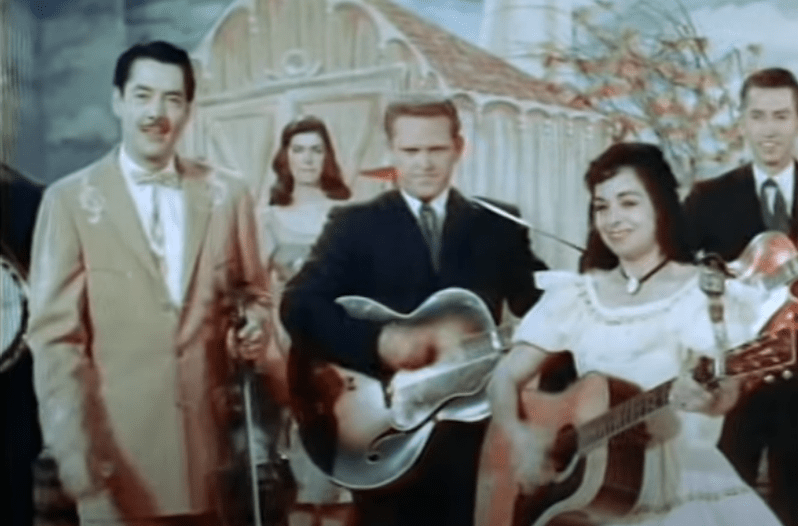The Nov. 22, 1963 assassination of President John F. Kennedy inspired recordings over the next few years by rock (The Byrds' "He Was a Friend of Mine"), blues (Otis Spann's "Sad Day in Texas") and folk (Phil Ochs' "Crucifixication") firebrands.
In Nashville, country artists supposedly avoided national politics (a notion that's easy enough to dispel if you look up George Wallace's presidential campaigns). Looking at the hits, only Jimmy Dean's 1962 single "PT-109," a tale of Kennedy's World War II heroics, stands out as a pre-death tribute to America's 35th president.
A deeper dig turns up "Three Widows," a message of sorrow for Jackie Kennedy, Lee Harvey Oswald's Soviet defector bride Marina Oswald Porter and Marie Tippit, whose husband J.D. Tippit was murdered the same day as JFK in Dallas, Texas. It's not the only country song about the JFK assassination, with other examples including Autry Inman's "Ballad of John F. Kennedy" and Jimmy Newman's "November 22, 1963," but it serves as a great example of how country music reacted to a major event in U.S. history.
One of country music's all-time great family singing duos, Wilma Lee & Stoney Cooper, recorded "Three Widows," a co-write by the Cooper's longtime bandmate L.E. White. Decca released it as a single in 1966.
For the uninitiated, Wilma Lee & Stoney Cooper deserve a mention whenever debates pop up about Hank Williams Jr., Tanya Tucker and Jerry Lee Lewis' Country Music Hall of Fame hopes.
While still in high school, West Virginia-born fiddler and guitarist Dale Troy "Stoney" Cooper joined gospel group The Leary Family Singers. Band member Wilma Lee Leary, a gifted singer and guitarist, became his wife in 1941.
As leaders of The Clinch Mountain Clan, the husband and wife duo performed Appalachian bluegrass, gospel and other styles. In the '40s, the group excelled as Rich-R-Tone Records signees and radio stars, highlighted by a stay with Wheeling, W. Va. radio station WWVA's Jamboree.
By the '50s, the Cooper family hit its stride as recording artists with Columbia, the label that issued the singles "Thirty Pieces of Silver," "Legend of The Dogwood Tree" and "Sunny Side of the Mountain." A 1955 move to Hickory Records brought even more hits, including "Cheated Too," "Big Midnight Special," "Come Walk With Me," "Wreck on The Highway" and "There's a Big Wheel." By 1957, Wilma Lee and Stoney were Grand Ole Opry members. The couple appeared frequently on the Opry stage until Stoney's 1977 passing.
"Three Widows" and its B-side, the Wilma Lee Cooper solo cut "A Hero's Death," came out after the hits had slowed down for one of the great recording acts of the '50s. Not that they were struggling. The Cooper family had a steady gig at the time as one of the Opry's more nostalgic acts, and the folk festival set likely dug the couple's mountain music style and its gospel selections ("Walking My Lord Up Calvary Hill," folk revival favorite "Tramp on The Street").
There's a chance they looked to the most Earth-shattering headline to that point in the '60s for one last hit, or they simply felt moved by three women from different walks of life becoming widows from the same chain of events. Either way, Wilma Lee & Stoney added to a 20th century song cycle about JFK that continued with everything from the Rolling Stones' "Sympathy For The Devil" to Pearl Jam's "Brain of J."
Read More: Jake Blount Traces the Black Roots of Country Music on 'Spider Tales' [Interview]
Following Stoney's death, Wilma Lee continued on as a bluegrass artist for Rounder and other labels. She lived to be 90 (Feb. 7, 1921- Sept. 13, 2011). The couple's daughter Carol Lee Cooper became the leader of Opry regulars the Carol Lee Singers.
Now Watch: Songs Every Tanya Tucker Fan Knows By Heart




